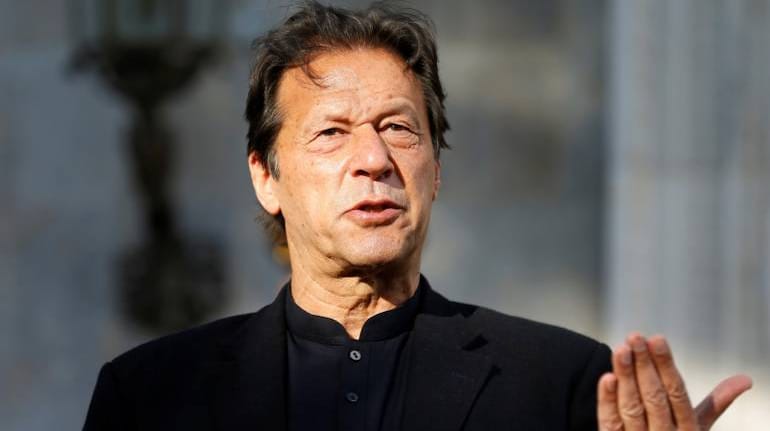



Amidst the turmoil in South Asia, especially in Sri Lanka and Pakistan, the Indian public is showing rare maturity. A large and cacophonous section of Indians, often derisively referred to as bhakts have been relatively silent, not gloating that India is doing better than most of the rest of South Asia.
It is wishful to expect that they learned their lesson from the red-faced experience of the second wave of COVID-19, having brashly boasted from rooftops prematurely that India was a model for the rest of the world in overcoming and controlling the pandemic. Whatever that may be, the outcome is tantamount to maturity. It helps to deal with the problem of an unstable neighbourhood instead of exacerbating the challenges without being of any real help. Either for India or for the larger subcontinent.
Historically, humour as a national trait has helped Sri Lankans to cope with adversity. The country has had more than its share of adversity in civil war, insurrection, religious extremism, and failed government policies. In their ongoing crisis, daily lives for most Sri Lankans have hit rock bottom. Yet, they have been at their imaginative best in facing their predicament with a sense of humour.
‘Gota go’ is the innovative slogan that is on the head scarves of protesters demanding the resignation of President Gotabaya Rajapaksa. ‘Gota’ is his nickname. The slogan is also a pun on the term ‘gotta go’, usually used when someone is trying to get out of an unseemly situation. Such innovation is not new.
When R Premadasa was appointed Minister of Local Government, Housing and Construction in 1977, he improved roads in Colombo and beautified the capital by building tasteful, green roundabouts at key, crowded traffic intersections. That got Premadasa the nickname of ‘Roundabout’ Premadasa, whose initial ‘R’ actually stood for Ranasinghe. Premadasa later became Sri Lanka’s President, and was assassinated while in office in 1993.
Similarly, Ronnie de Mel as Finance Minister in 1977 initiated economic reforms in Sri Lanka on the scale that Manmohan Singh did as Finance Minister in 1991. Ronnie de Mel earned the nickname ‘Rupee’ de Mel for freeing the local currency from socialist controls. The island nation was once seen as the next Asian Tiger similar to South East Asian countries. Alas, whether a good sense of humour alone can pull Sri Lanka out of its present deep crisis is doubtful. But it certainly helps.
A bright spot to emerge in India’s neighbourhood in recent months is Nepal. Here too, an obsession among bhakts to compete with China in Nepal instead of charting its own course with a country, which was until recently a Hindu kingdom, has given way to better sense. A Right-wing religious-nationalist urge in India to control Nepal and prescribe to this sovereign neighbour as if this school knows what is best for Kathmandu had only fuelled a counter-reaction across the border of equating Nepali nationalism with opposition to India.
Chinese intentions in Nepal have expanded in recent years from merely being a listening post on the Tibetan secessionist diaspora to a destination of opportunity. Unlike what some Indians assume, China is not in competition with India in Nepal. It is no surprise that Chinese investment in Nepal has exceeded that of India for the first time. It is simply because China-Nepal ties have become transactional and India’s failures in productively engaging Nepal have given opportunities to China on a platter to cash in on.
The three-day visit by Nepal’s Prime Minister Sher Bahadur Deuba to New Delhi which concluded on April 3 augurs well for bilateral relations after it nosedived in 2015 with alleged ‘Big Brother’ interference in Nepal’s constitutional process, and then a hugely unpopular, undeclared blockade of Nepal by India. For now, that dismal past has been left behind.
If anyone can pull India-Nepal relations up by its bootstraps, it is Deuba because he has had a long innings in dealing with India through good and bad times. The most celebrated moment of this five-time Prime Minister was when he took courage in his hands and signed the vexed Mahakali River Treaty with India more than quarter century ago. The Teesta River waters sought by Bangladesh have eluded such statesmanship on both sides which made the Mahakali Treaty possible.
Notwithstanding the final outcome of the continuing political drama in Islamabad, Prime Minister Imran Khan has delivered a crippling blow on Pakistan’s Foreign Service on his way out. Its effects may outlast Khan’s time in politics.
By revealing the contents of a top secret telegram sent by his Ambassador in Washington, Asad Majeed, to the Foreign Ministry about the envoy’s conversation with the United States Assistant Secretary of State for South Asia, Donald Lu, Khan violated the sanctity of diplomatic communication, which has been central to the work of embassies for centuries.
Pakistan has had seasoned diplomats as foreign ministers and national security advisers. Like it or not they have steered Islamabad’s foreign policy through difficult challenges of the kind no South Asian nation – other than India – has faced successfully. Few small nations at the crossroads of geography and history have profited themselves like Pakistan through diplomatic jugglery, even pawning of its self-respect and dignity at times.
All that was possible, in part at least, by maintaining the secrecy of its diplomatic engagements. Remember Henry Kissinger’s historic secret trip to China in 1971 via Pakistan for the US opening to Mao Zedong! In one blow, Khan has raised doubts about the future secrecy of diplomatic dealings with Islamabad, which may be hard to overcome for a long time.
Discover the latest Business News, Sensex, and Nifty updates. Obtain Personal Finance insights, tax queries, and expert opinions on Moneycontrol or download the Moneycontrol App to stay updated!
Find the best of Al News in one place, specially curated for you every weekend.
Stay on top of the latest tech trends and biggest startup news.